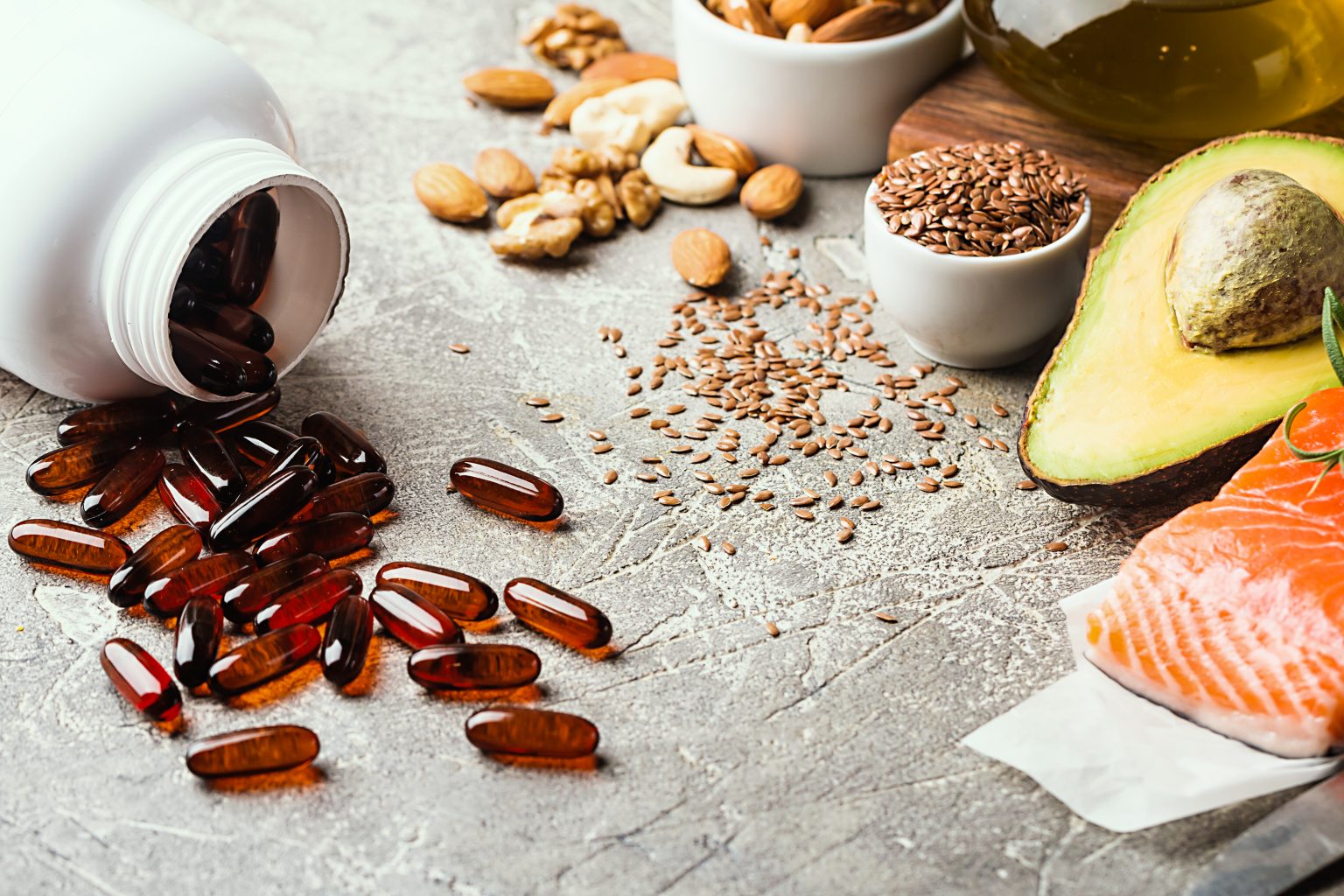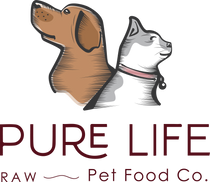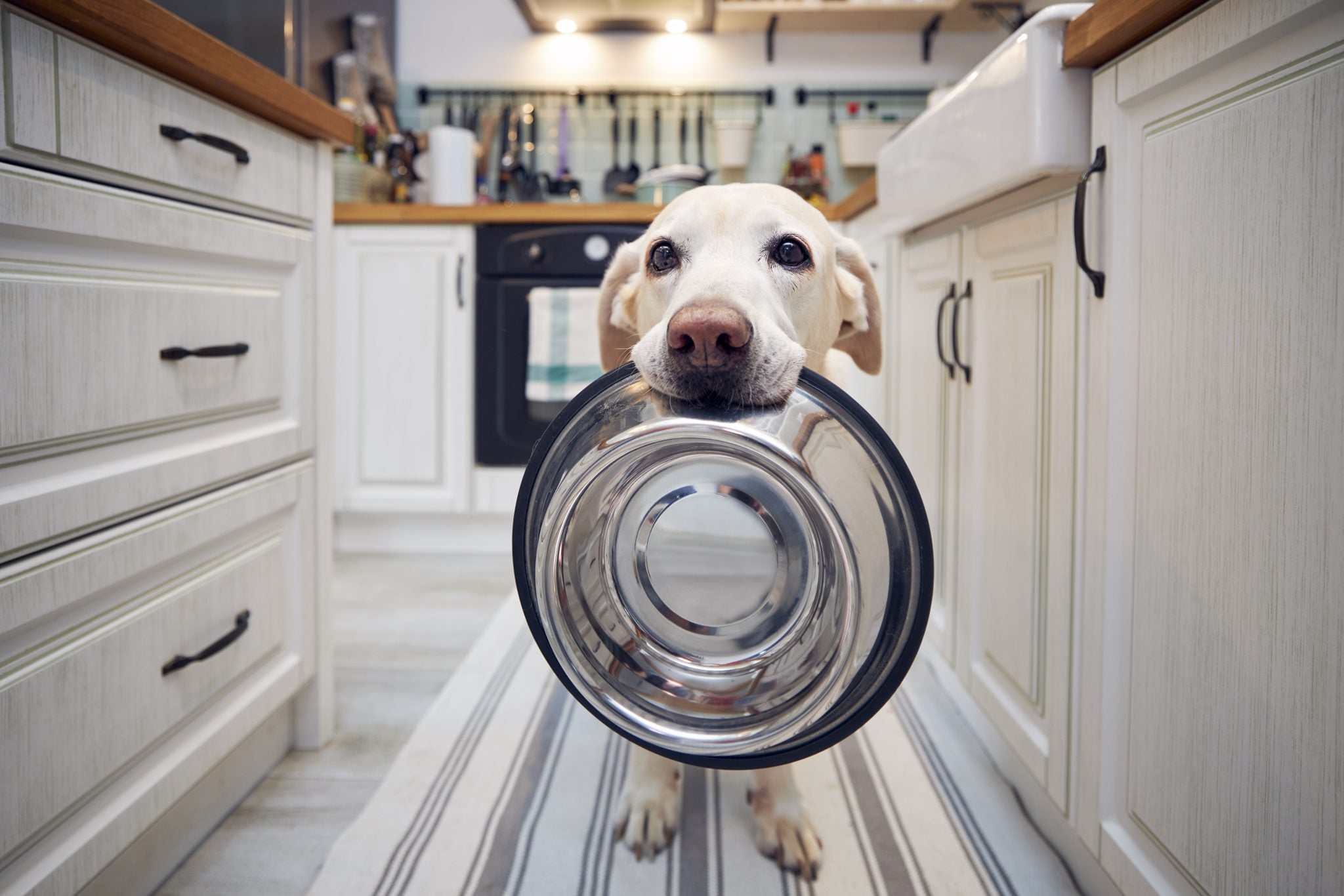Variety in your dog’s bowl is extremely important. If you think about this statement for a moment, do you eat the same food every day, all day? Of course not. You have variety in your diet which keeps food interesting and fills in nutritional gaps. The same goes for our dogs. Feeding a variety of foods will reduce the risk of deficiencies, prevent boredom, and improve their overall health.

Why We Rotate Proteins
For our dogs and cats, protein is their primary source of nourishment. Depending on the raw model you’re feeding, animal proteins make up the majority of their diet and, for some, the whole diet. So, it makes sense this would be the primary concern when we’re talking about feeding variety. Here at Pure Life Raw, our customized meal plans include muscle meat, raw meaty bones, liver, and another secreting organ like kidney or spleen. To maintain variety, we offer four to seven protein sources.
Let’s dive deeper into why rotating proteins is critical to your dog’s health.
Amino Acids
Amino acids, found in meat and fish, are the building blocks of protein, so they’re important for muscle growth and repair. Your dog needs 10 essential amino acids in order to stay healthy and strong. These include histidine, isoleucine, leucine, lysine, methionine, cysteine, glycine, phenylalanine, tyrosine, threonine, tryptophan, and valine.

Dogs who are fed a variety of protein sources that include these foods will get enough amino acids from eating them and may not need to take them as a supplement. When dogs don’t get enough amino acids, they can develop a wide range of health problems. It can be difficult to determine if your dog has a protein or amino acid deficiency, but signs include:
- Poor coat health
- Significant weight loss
- Anemia
- Abnormal irritability
The signs will vary based on which amino acid is missing. In addition to the above signs, dogs can develop leaky gut syndrome, depression, liver disease, or lameness when they’re amino acid deficient.
Improved Digestion
Your dog’s digestive health is improved and protected by rotating proteins. Different kinds of beneficial bacteria are required for your dog’s intestines to efficiently absorb nutrients. For your dog to be healthy, their gut microbiome must be a balance of both good and bad bacteria.
Limiting your dog to one protein source can result in dysbiosis, an imbalance of the gut microbiota. Your dog’s digestive system will be strengthened by varied proteins, resulting in higher nutrient absorption and overall better health. And, since 70% of the immune system resides in your dog’s gut, variety can help in fighting disease through improved digestion.

Food Allergies
Not only does variety fill in nutritional gaps, but it also decreases the risk of your dog experiencing food-related allergies. When a dog has food-related allergies, it’s usually due to the protein in the food. We know protein comes from meat, but lesser-quality protein is also found in corn meal, soybean flour, and wheat. So, why don’t we know immediately that our dog is developing a food-related allergy if they’re eating these foods?

Allergies due to food don’t generally happen overnight. It can take months or even years of our dogs eating the same food to develop an allergy. So, let’s say you’ve been feeding your dog a chicken recipe only for a year, and all of a sudden his fur is falling out, his skin is irritated, and he seems to be itching every chance he gets. The signs may seem sudden, but the allergy to this food has happened over time due to over-exposure to a single source.
Rotating proteins reduces the risk of your dog experiencing an allergic reaction because his protein source is alternating with other sources of protein on a regular basis.
Testing Your Dog’s Health at Home
Remember, prevention is key! By providing a variety of proteins from the beginning, you can avoid illness and allergies altogether (we can help with that!). But, if you aren’t sure if your dog is deficient, or perhaps suspect they may be, there are tests you can do at home to ensure they’re healthy. Or, if there is a deficiency, you’ll be able to pinpoint what it is and incorporate the whole foods necessary to fill in the missing element.
A hair tissue, mineral analysis test (HTMA) from Parsley Pet can provide you with information on 48 key nutrients and let you know if your dog’s body is housing toxic heavy metals. They only need one tablespoon of your dog’s fur to run the test so it’s fairly simple. Once the test is complete, you receive the full report with action steps from a veterinarian on their team.
AnimalBiome has an at-home test that provides you with information on your dog’s gut health. Using a small stool sample, the scientists at AnimalBiome analyze the bacteria in your dog’s gut and compare it to a healthy gut microbiome. AnimalBiome also provides a comprehensive analysis along with any action steps that may need to be taken.

Incorporating Supplements
We recommend using whole foods to supplement your pet’s diet when possible. But there are occasions when that’s not an option. For instance, if your pet is allergic to a certain food or won’t eat a certain protein that would fill a nutritional gap, you may consider adding a commercially made supplement.

We’ll dive into how supplements can help your pet and provide our favorite recommendations in our next article. Stay tuned!
References
Dog Poop 101: Find Out How Healthy Your Dog Really Is – DoggyBiome
The Role of the Canine Gut Microbiome and Metabolome in Health and Gastrointestinal Disease – PMC
Analysis of the gut microbiome in dogs and cats
Effects of dietary protein restriction and amino acids deficiency on protein metabolism in dogs

